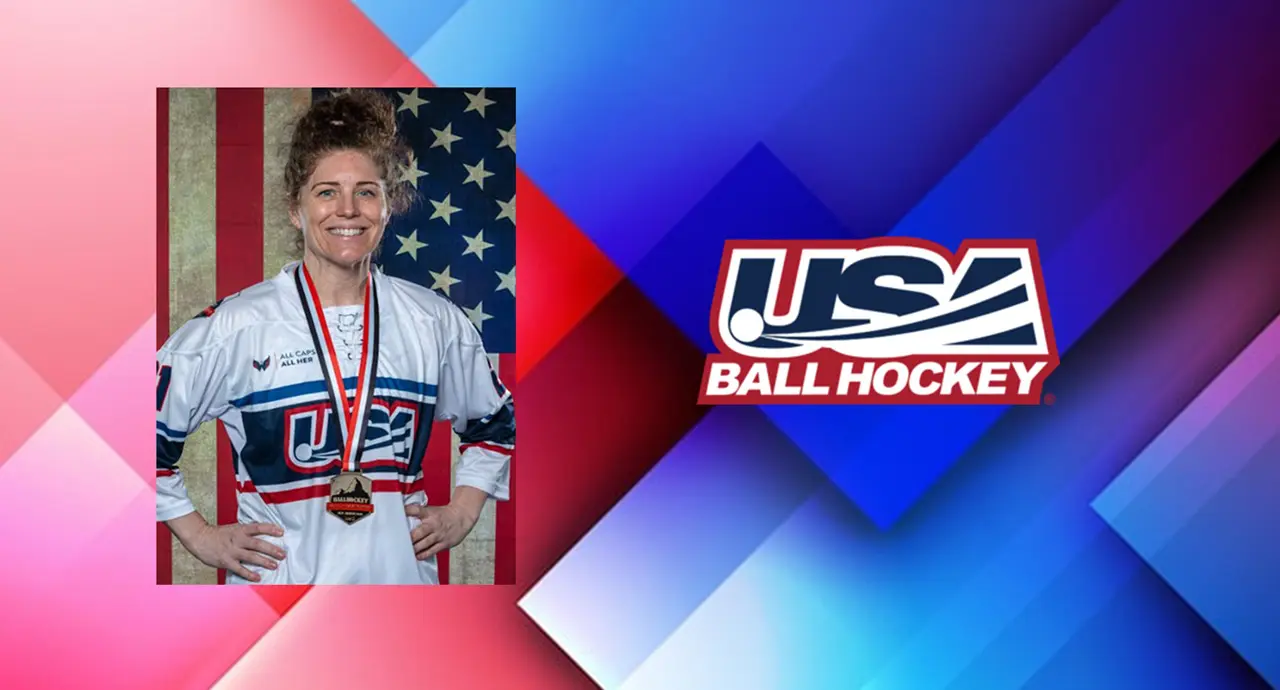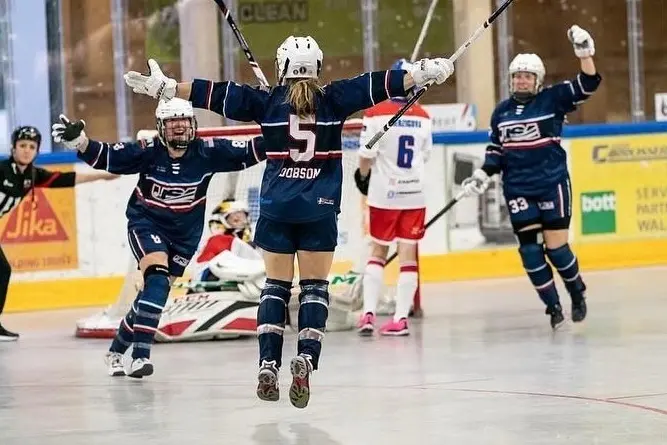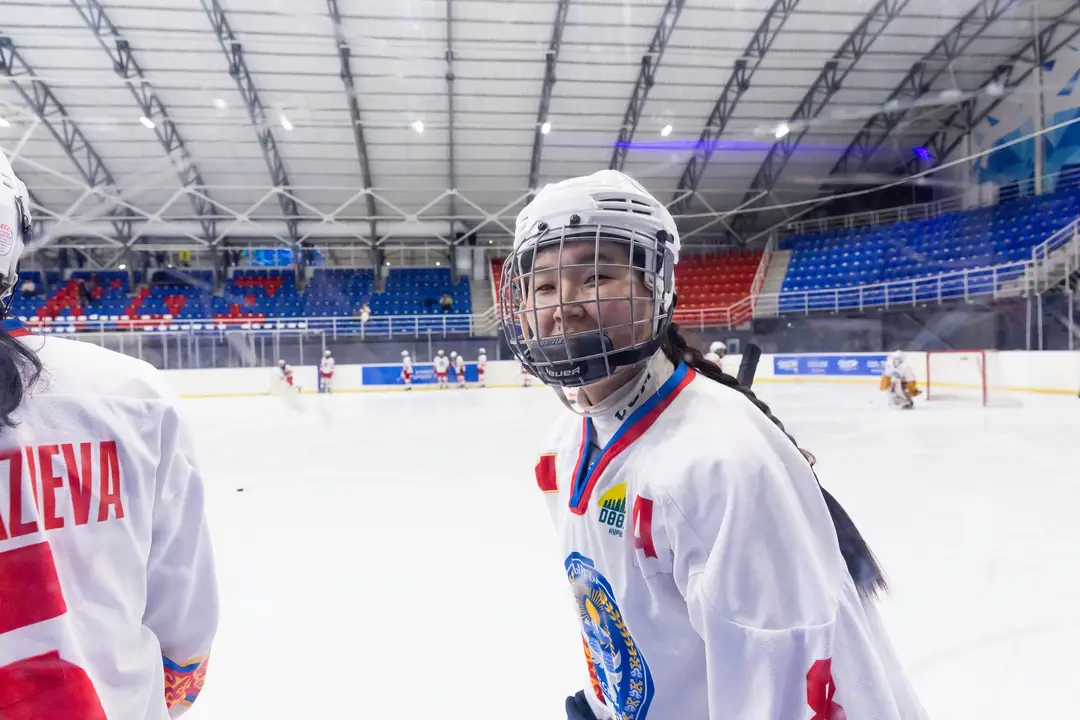During any athlete’s career, injuries can often impinge on their sporting endeavors. Over the last few seasons, the biggest antagonist that has plagued women’s ice hockey has involved concussions. The attention-grabbing reality of the plight of such symptoms has generated exposure to the game, albeit for the wrong reasons.

Such a tragic chapter in this game represents a cultural movement, an effect on women in sport that was truly never taken into account. Spearheaded by a pair of accomplished players that have excelled at the Ivy League Level, the end result is an inspiring call to action.
Josephine Pucci and Paige Decker are among the architects of the Headway Foundation, a non-profit organization dedicated to a safer sports culture, while ensuring an availability of resources for brain-injured patients, and more importantly, providing an empathic approach, geared towards providing a new generation of skaters an access to knowledge that was non-existent before.
As athletes who were both affected by the haunting impact of concussions, Pucci and Decker have established the platform of Headway as one developed on a compassionate understanding. They have poured their efforts into an initiative that has transformed into both a labor of love and a direct rebuttal against the ravaging effects of concussions.
Along with Danny Otto, a former skater with the Yale Bulldogs, and the support of Jocelyn Yokow, a former competitor with the Colgate Raiders and Sarah Renberg, a high school player from Bethesda, Maryland, who plans to study neuroscience, another member of the Headway team involves former Connecticut College competitor Victoria Pucci, the younger sister of Josephine. This collaborative effort has also seen the support of numerous figures in the women’s ice hockey community, proud to lend their names to this courageous cause. Akin to Pucci and Decker, the players involved, Miye D’Oench, Bray Ketchum and Michelle Picard have also skated in the Ivy League. As a side note, all three are competitors in the NWHL, as D’Oench and Ketchum are teammates with the New York Riveters.
Taking into account that Headway also aspires to provide opportunities for teams to look after the health of their respective players, potentially shielding them from harm, the involvement of such athletes has enabled them to serve as ambassadors in a worthy cause. In addition, the ECAC Hockey Conference engaged in an exciting partnership with Headway from February 3-4, 2017, resulting in Concussion Awareness Weekend. All 24 teams from the conference participated, with the opportunity for fans to donate online whenever their favorite ECAC team scored a goal.
Part of the commitment towards the Weekend involved all competitors in ECAC conference play, male and female, adorning their helmets with Headway’s sticker, a visual reminder that symbolizes an extension of teamwork and good sportsmanship. This was accentuated by ECAC competitors committed to taking the New Tough Pact. In so doing, each players pledged to not only report concussion symptoms, but to support teammates during recovery, while committing to play that is within its rules, avoiding heat shots and/or potentially dangerous hits from behind. In addition, all home teams during the Weekend had tables distributing information in the hopes of raising awareness, while every team in the ECAC were given an opportunity to create videos about concussions and share them on social media.“We are very excited to have (Miye) D’Oench, (Michelle) Picard, and (Bray) Ketchum involved. They are great athletes and great people, who set a tremendous example. Miye’s mom (Tani) is also heavily involved in Headway as a member of our Advisory Board. The D’Oench family is really incredible, and we are really appreciative of their guidance and support,” remarked Pucci.
Headway’s Advisory Board consists of six dedicated individuals, with professions in sports neurology, sports medicine, mental health, education, journalism and non-profit management, testament to a positive recruiting process. Such a gathering helps to further Headway’s goals to provide better concussion policies, augment diagnostic and treatment, while helping to ensure that quality care is universal. As Decker discusses, the impact of the Advisory Board reflects a collection of positive individuals whose specialized backgrounds mesh well together, helping to define the collaborative spirit of Headway,
“We are really fortunate to have a phenomenal group of individuals serving on our advisory board. We wanted to involve good people who share our passion for addressing concussions from a positive and productive angle.
With backgrounds in medicine, nonprofits, sports media, and education, they’ve brought a tremendous amount of knowledge and insight to the table. They’ve been instrumental for us as we start out and we are really excited to continue working together as Headway grows.”
With a career highlighted by an opportunity to don the USA jersey in women’s ice hockey at the 2014 Sochi Winter Games, Josephine Pucci’s dreams were nearly sidelined when a concussion forced her to be inactive for her senior season with the Harvard Crimson women’s ice hockey program. While the simpler days of playing were replaced by troubled times, Pucci’s efforts to persevere and rebound are testament to her strong leadership, finding a way to continue to make an impact in the game.
Dedicated towards providing athletes with a strong voice in the proper handling of concussions, with emphasis on prevention, reporting and recovery, there is an even more profound component for Pucci. Her younger sister Victoria competed at Connecticut College, having graduated in 2016. While she works on a Masters Degree in Education, her career was also reduced abruptly due to concussion. As a side note, another sister, Samantha, played at Utica College. In discussing the motivation to help launch the Headway Foundation, reflections on communicating with others who suffered from such symptoms rose to the surface, elevating Pucci’s need to make an impact,
“During my time in college and with the national team, I suffered concussions. My recovery process had much uncertainty and left me with many unanswered questions.
Even so, I learned so much during the process and was so fortunate to make a full recovery. When I returned to play ice hockey, my story traveled a bit, and I was connected with people from all over the country.
I spoke with youth players, high school, and college players, and even parents, who were suffering from symptoms and looking for answers of their own. I did my best to share what worked for me, but I wished there was more I could do.
There are a lot of areas that we can all do better in order to limit the number of student athletes suffering from the debilitating effects of concussions. Athletes, coaches, parents, trainers, doctors, researchers – we can all do more.
Paige, Danny, and I all learned a lot through our recovery processes, and we want to use what we learned to help others from prevention and awareness, to recovery through this patient driven initiative.”
Having skated with the Yale Bulldogs from 2010-14, Paige Decker also saw her playing career derailed by a concussion. Although Decker managed to complete her studies and graduate, the chronic return of post concussion syndrome forced her to temporarily her first job upon graduation, placing her professional career in stasis. The stormy waters of such a difficult and trying time could only be navigated through the love and support of friends and family,
“I have leaned heavily on support from family and friends throughout my recovery. I have not always been positive or strong, but during those moments of weakness they were positive and strong for me. This is not an injury you can face alone, which is the driving force behind our Concussion Circle program.”
Representing one of Headway’s innovations, the involvement of the Concussion Circle is a key learning tool in the athlete- patient focused initiative, reciprocated by the athletes and patients themselves. Recognizing that it is not always easy for athletes to discuss injuries or potential setbacks, as admitting weakness is not always perceived as positive in some aspects of sport; the Concussion Circle is more than just an online questionnaire. It is a compassionate effort to connect with individuals coping with post concussion syndrome or in the midst of their recovery.
As the objective of the questionnaire is to gain a better understanding of what a particular athlete is enduring or suffering with, it is also an opportunity to see how Headway can best be suited to provide resources and support, while working towards the establishment of a safer sports culture by providing athletes a direct sense of ownership. In discussing the feedback since the launch of Concussion Circle, Decker proudly discusses how it helps to embody the purpose of Headway,
“The feedback thus far has been great! From the beginning one of our goals has been to support patients during recovery, and the Concussion Circle is one way for us to do that.
Recovery can be a very isolating and difficult road, and it is important to have a strong support system during that process. It helps to talk to someone who understands what you’re going through, or to know that someone is thinking of you.
It definitely embodies Headway’s purpose because we are all about cultivating that peer to peer connection with patients and helping them feel supported during the ups and downs of recovery. We are really excited to see this support network grow!”
Equally important is the other key initiative for Headway, the inspiring and energizing New Tough campaign, which applauds the mental toughness to not only face but handle concussions. Such values encompassed include the courage to not only report concussion symptoms, but find the patience towards a full recovery before a premature return to the game.
Part of New Tough also involves an element of leadership, encouraging others to speak up for a concussed teammate, providing support while they heal. Perhaps more importantly, the keystone of New Tough is not only recognizing brain health, but playing the game with an even-keeled emotion, refusing to be tempted by anger or retaliation, and display good sportsmanship by avoiding illegal hits, especially from behind and to the head.
The powerful message of New Tough is also conveyed in a short film which chronicles the recovery efforts of a young athlete whose maturity shines as sporting ambitions are sidelined in the name of good health and a proper recovery. In highlighting the steps necessary towards proper treatment, support and recovery, the objective of said film is to not only encourage others to handle concussions properly, but to set a positive example by understanding that healing.
“I hope it will be a source of encouragement during recovery, but also promote a culture shift in the way concussions are talked about, thought about, and responded to. As athletes we are taught to be tough and play through pain and injury. But a concussion is a completely different type of injury that should never be played through. Oftentimes making a comeback and playing through injury is glorified in sports, but with New Tough, we are acknowledging that sometimes dealing with concussions in the right way is the harder thing to do, and it requires a strong mental toughness during much uncertainty,” stated Pucci.
Although both Pucci and Decker had to abandon the game that meant so much to them before their careers reached its twilight, they have become harbingers for an empowered generation whose collective blueprint is a paramount, erasing stigmas, finding strength in a unified effort. From expanding the conversation to building a collection of resources, the building blocks involve awareness, aid and advocacy, which is truly admirable, astonishing and amazing.
“All quotes obtained first hand unless otherwise indicated”
NOTE: The New Tough video can be viewed on various facets of social media including the following:
To follow the Headway Foundation on Twitter, please visit: https://twitter.com/headwayfdn
[adrotate group=”1″]
Related Articles
Categories
Recent Posts
[adrotate group=”2″]




